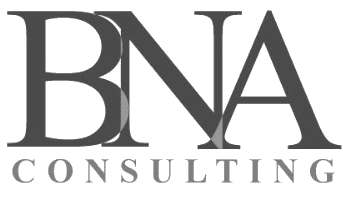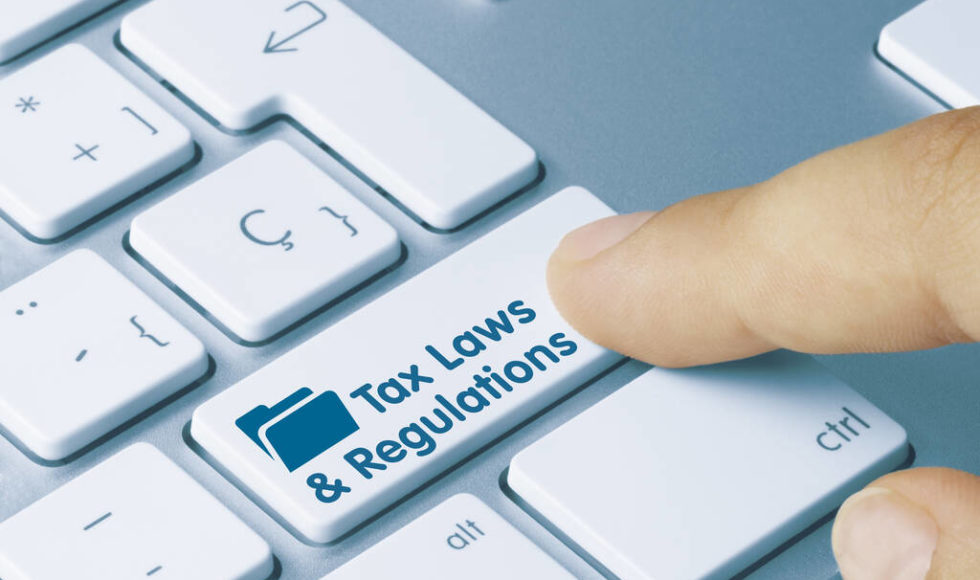Introduction
Navigating the accounting and tax obligations of a limited company can be a daunting task, especially for new business owners. The complexities involved in managing financial records, complying with tax regulations, and ensuring timely filings can overwhelm even the most organized entrepreneurs. This guide aims to simplify these concepts, offering a comprehensive review of the key accounting and tax responsibilities for limited companies in the UK.
What is a Limited Company?
A limited company is a business structure where the company is a separate legal entity from its owners. This means that the company itself is responsible for its debts and liabilities, not the individual shareholders or directors. There are two main types of limited companies in the UK: private limited companies (Ltd) and public limited companies (PLC). The most common form for small and medium-sized businesses is the private limited company.
Benefits of Setting Up a Limited Company:
- Limited Liability: Shareholders are only liable for the company’s debts up to the amount they invested.
- Tax Efficiency: Limited companies often benefit from lower tax rates compared to sole traders.
- Professional Credibility: Operating as a limited company can enhance your business’s credibility with clients and suppliers.
The Role of Accounting in a Limited Company
Accurate accounting is the backbone of a successful limited company. It not only ensures compliance with legal requirements but also provides valuable insights into the financial health of the business. Good accounting practices allow company directors to make informed decisions, forecast future performance, and manage cash flow effectively.
Accounting Principles for Limited Companies:
- Consistency: Maintain the same accounting methods year after year unless there’s a good reason to change.
- Accrual Basis: Recognize revenues and expenses when they are incurred, not when cash changes hands.
- Going Concern: Assume the business will continue to operate in the foreseeable future.
Setting Up Your Limited Company’s Accounting System
Setting up an effective accounting system is crucial for managing your limited company’s finances. Start by choosing the right accounting software tailored to your business needs. Popular options include Xero, QuickBooks, and Sage, which offer features like invoicing, expense tracking, and payroll management.
Setting Up a Chart of Accounts: A chart of accounts is a listing of all the accounts in your accounting system. It categorizes your income, expenses, assets, and liabilities, making it easier to track financial transactions.
Importance of Regular Bookkeeping: Bookkeeping involves recording all financial transactions regularly. This ensures that your accounts are up to date and accurate, which is vital for tax reporting and financial planning.
Understanding Financial Statements
Financial statements are essential tools for evaluating the performance of your limited company accountants. They provide a snapshot of your company’s financial position and profitability.
The Balance Sheet: The balance sheet shows the company’s assets, liabilities, and equity at a specific point in time. It gives an overview of what the company owns and owes.
The Income Statement (Profit and Loss Account): This statement summarizes the company’s revenues and expenses over a period, showing whether the company made a profit or incurred a loss.
Cash Flow Statement: The cash flow statement tracks the flow of cash in and out of the company, highlighting how the company is generating and using cash.
How These Statements Interconnect: These financial statements are interrelated. For example, the profit from the income statement will affect the equity section of the balance sheet. Understanding these connections is key to managing your company’s finances effectively.
Company Tax Obligations
Limited companies in the UK have several tax obligations that must be met to avoid penalties. These include corporation tax, Value Added Tax (VAT), and payroll taxes such as PAYE and National Insurance contributions.
Overview of Corporation Tax: Corporation tax is levied on the profits made by the company. It is currently set at 25% for most companies, but rates can vary depending on the size and nature of the business.
Value Added Tax (VAT): VAT is a tax on the value added to goods and services. Companies must register for VAT if their taxable turnover exceeds £85,000 per year.
PAYE and National Insurance Contributions: PAYE (Pay As You Earn) is the system for collecting income tax and National Insurance from employee wages. As an employer, you’re responsible for calculating and deducting these from your employees’ pay.
Corporation Tax: What You Need to Know
Corporation tax is one of the most significant taxes that limited companies need to manage. It’s calculated on the company’s profits after deducting allowable expenses.
Filing Deadlines and Payment Schedules: Corporation tax returns must be filed annually with HMRC, and payment is due nine months and one day after the end of your company’s financial year.
Allowable Expenses and Deductions: Certain expenses can be deducted from your profits to reduce your corporation tax bill. These include business travel, office costs, and staff salaries, among others.
VAT for Limited Companies
Registering for VAT is mandatory once your company’s taxable turnover exceeds the threshold of £85,000. However, you can voluntarily register if your turnover is below this level, which can be beneficial for claiming back VAT on business expenses.
Different VAT Schemes Available: There are several VAT schemes that can simplify the process for small businesses:
- Flat Rate Scheme: Pay a fixed percentage of your turnover as VAT.
- Cash Accounting Scheme: Pay VAT based on when you receive payments rather than when you issue invoices.
- Annual Accounting Scheme: Pay VAT in advance in monthly or quarterly instalments.
How to File VAT Returns: VAT returns are usually filed quarterly. They must be submitted to HMRC online, detailing the VAT you’ve charged and the VAT you’ve paid on business expenses.
Payroll Taxes: PAYE and National Insurance
Managing payroll taxes is a critical aspect of running a limited company. PAYE is used by HMRC to collect income tax and National Insurance from employees’ wages.
Setting Up and Managing Payroll: You must set up a payroll system to calculate and withhold the correct amounts of tax and National Insurance. Payroll software can simplify this process by automating calculations and submissions to HMRC.
National Insurance Contributions and Thresholds: As an employer, you’re required to pay National Insurance contributions on your employees’ earnings above certain thresholds. These contributions help fund state benefits such as the NHS and state pensions.
Director’s Responsibilities in Accounting and Tax
As a company director, you have legal obligations to ensure that your company meets its accounting and tax responsibilities. Failure to comply can result in significant penalties and personal liability.
Legal Obligations of Company Directors: Directors must ensure that accurate financial records are kept, annual accounts are filed on time, and taxes are paid when due. They must also act in the best interests of the company and avoid conflicts of interest.
Understanding Fiduciary Duties: Fiduciary duties require directors to act with care, skill, and diligence in managing the company’s affairs. This includes making informed decisions and keeping the company’s finances in order.
Personal Liabilities for Non-Compliance: If a director fails to comply with their duties, they could be held personally liable for any resulting losses. This includes paying fines or, in severe cases, being disqualified from acting as a director.
Hiring an Accountant vs. DIY Accounting
Deciding whether to hire an CIS accountant or manage your own accounting depends on your business’s complexity and your confidence in handling financial matters.
Pros and Cons of Hiring an Accountant: Hiring an accountant can save you time and ensure compliance with tax laws, but it can be costly. Accountants bring expertise that can help you optimize tax savings and avoid costly mistakes.
When to Consider Doing Your Own Accounting: If your company’s finances are straightforward and you’re comfortable with numbers, doing your own accounting might be a cost-effective option. However, it’s essential to stay updated on tax laws and regulations.
How to Choose the Right Accountant for Your Business: Look for accountants with experience in your industry, and check their qualifications and references. A good accountant should offer tailored advice and be proactive in helping you manage your finances.
Common Tax Mistakes and How to Avoid Them
Mistakes in tax reporting can lead to penalties and increased scrutiny from HMRC. Common errors include missing deadlines, underreporting income, and claiming ineligible expenses.
Importance of Staying Updated on Tax Laws: Tax laws change frequently, and staying informed is crucial to ensuring compliance. Subscribing to HMRC updates or consulting with an accountant can help you stay on top of these changes.
Strategies to Ensure Compliance: Regularly review your financial records, set reminders for filing deadlines, and double-check all tax submissions. Using accounting software can also help reduce errors and streamline the tax reporting process.
Tax Planning Strategies for Limited Companies
Effective tax planning can help your limited company minimize its tax liabilities while remaining compliant with the law.
Minimizing Tax Liabilities Legally: Strategies include timing income and expenses to maximize deductions, using tax-efficient investment vehicles, and optimizing the structure of your company’s ownership.
Importance of Tax-Efficient Remuneration: Directors can pay themselves through a combination of salary and dividends to reduce the overall tax burden. It’s important to calculate the most tax-efficient mix based on current tax rates.
Planning for Future Tax Obligations: Setting aside funds for future tax payments can prevent cash flow issues when large tax bills are due. Consider creating a tax reserve account to cover these obligations.
Filing Your Annual Accounts and Tax Returns
Filing your company’s annual accounts and tax returns is a legal requirement. Failure to do so on time can result in fines and other penalties.
Deadlines for Filing Accounts and Returns: Your company’s annual accounts must be filed with Companies House within nine months of the financial year-end. Corporation tax returns are due 12 months after the end of the accounting period.
What Information Needs to Be Included: Your annual accounts should include a balance sheet, profit and loss account, and notes to the accounts. The corporation tax return should detail your company’s income, expenses, and tax due.
Penalties for Late Filing: Late filing of accounts or tax returns can result in penalties starting from £100 and increasing with the length of the delay. Consistent late filings can also lead to additional scrutiny from HMRC.
Conclusion
Managing the accounting and tax obligations of a limited company is essential for compliance and the long-term success of your business. By understanding your responsibilities, setting up effective accounting systems, and staying informed about tax laws, you can ensure that your company remains in good financial health.


